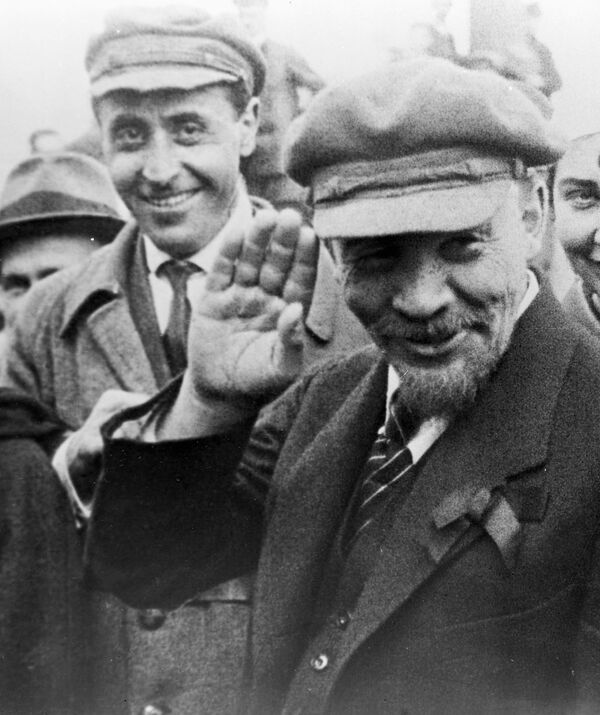Vladimir Lenin, who was commonly described in Russia as "more alive than all the living," has been forgotten once and for all 140 years after his birth. His specter no longer haunts Russia, and Communist Party functionaries pay homage to him only out of a sense of duty.
No one will think to put up pictures of Lenin around town to commemorate his birthday on April 22. And even if some weirdo does, nobody will notice. Even the dispute over removing his body from the Mausoleum does not arouse as much passion as debates over the legacy of his successor, Joseph Stalin, even though it was Stalin himself who created the posthumous cult of Lenin and immortalized him in legend as the "leader of the international proletariat."
Lenin's real destiny is much more interesting than the legends about him. The myths cannot contain the man. Many revolutionaries dreamed of changing the world but few did. Lenin did the impossible. He fundamentally changed the course of human history.
Lenin's rise to supreme power is as remarkable as it is unexpected. His entire biography up till the 1917 October Revolution is a string of nearly endless defeats.
He was expelled from university for no good reason. All he did was stand silently at a student protest. But for the brother of Alexander Ulyanov, a would-be terrorist hanged by the tsar, this was enough. Surprisingly, the tsar's secret police proved less an obstacle to Lenin than his own party comrades, who would not elect him the sole leader of the Russian Social Democratic Labor Party (RSDRP), as he desperately wanted. No one recognized his authority, and he quarreled with all the prominent Social Democrats.
Lenin and his Bolsheviks ("the majority" in Russian) broke off from the party, but they remained in the minority at nearly all the congresses. He was often alone even among the Bolsheviks. His closest allies spurned his ideas and initiatives. By the fall of 1917, he was ready to bypass the party's Central Committee and lead an uprising with a small but devoted band of comrades.
Ten years earlier, Lenin was caught off guard by the failed 1905 Revolution, as he would be later by the 1917 February Revolution. Lenin was overwhelmed by a sense of frustration - he had no money and not even the slightest chance of success.
But Lenin never gave up. His commitment to the cause, boundless energy and unbending will would lead him through all obstacles, misfortunes and defeats to victory. That being said, Lenin's success was as much determined by his rare tactical flexibility. He was made up of "the same glaring contradictions" that he ascribed to Leo Tolstoy in his article about Tolstoy as the "mirror of the Russian revolution."
The event that would ultimately be studied in schools and universities as the Great October Socialist Revolution was, in a certain respect, an adventure dreamed up by a diehard thrillseeker. Only diehard fighters could survive the crucible of the underground struggle against the tsarist regime.
When the Bolsheviks took power, Lenin declared it as the transfer of power to "the working class under the leadership of the revolutionary party" and the beginning of "the dictatorship of the proletariat." The dictatorship was, in fact, administered by people far removed from the working class. And by the time the working class realized this, it was already too late.
Now the workers of all countries, save his own, can be grateful to Lenin. They have won their fight for a better standard of living. Now they actually have something to lose except their chains. While this was happening all over the world, Soviet workers and peasants had to endure great hardships in a state where they had ostensibly taken power.
In reality it was Lenin, the chairman of the Soviet of People's Deputies, who took power. After 1917, he exercised both his unyielding political will and his political flexibility to remain in power. That power was eventually transferred to Stalin, who was not Lenin's successor of choice - far from it.
Having immortalized and idolized the founder of the Soviet state, Stalin renounced his most important theories and eradicated almost the entire old guard. Stalin ultimately eclipsed Lenin and consigned him to the dustbin of history.
The opinions expressed in this article are the author's and do not necessarily represent those of RIA Novosti.
MOSCOW. (RIA Novosti political commentator Nikolai Troitsky)



